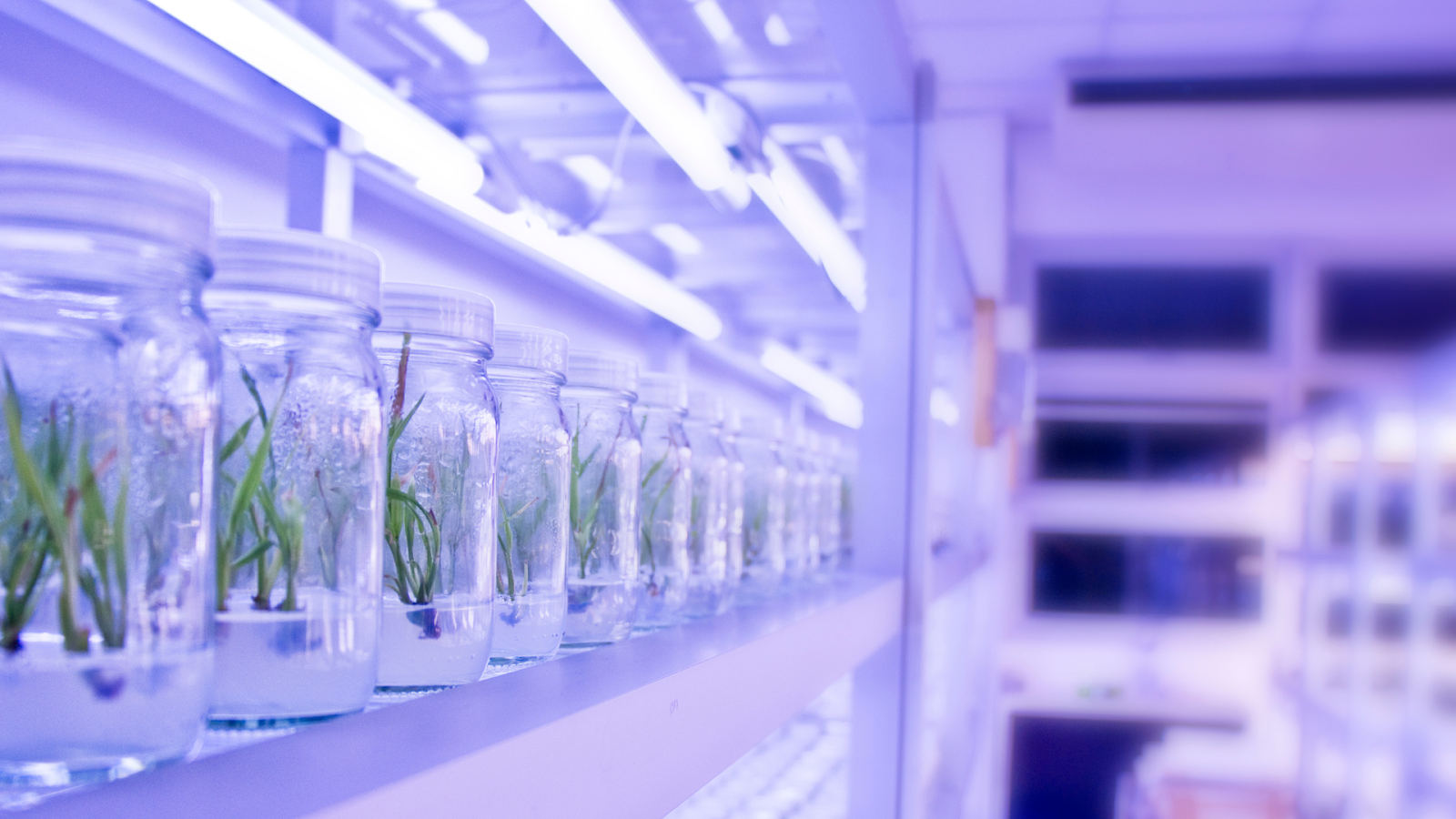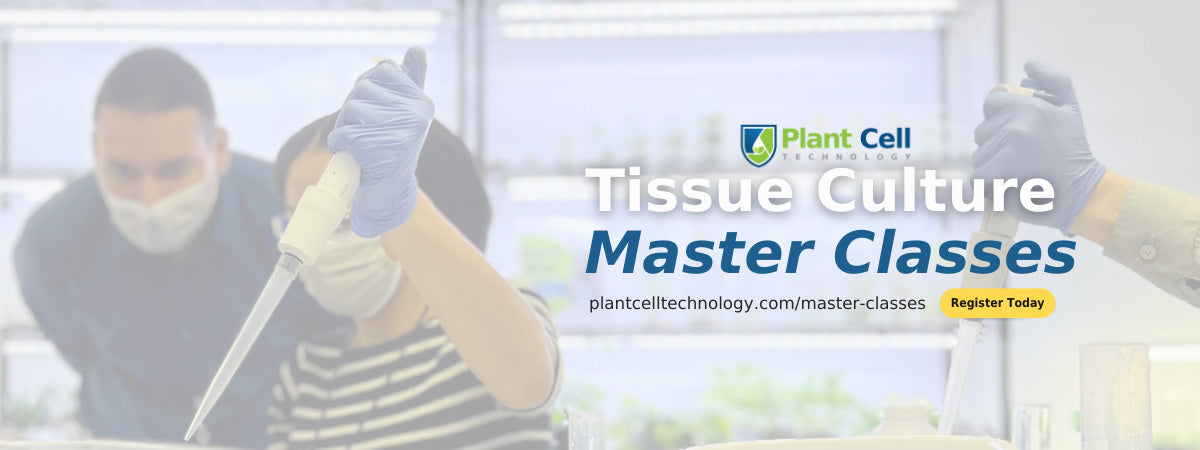
For Beginners: Answers to Your Plant Tissue Culture Questions

Introduction
Being a beginner in the tissue culture area is very challenging. Especially, when you have no background on the subject at all. And, all the resources available on the internet are just so full of jargon that makes it even more difficult to learn about the technology.
But, at Plant Cell Technology, it’s all about tissue culturists. Here, there’s no differentiation done based on our culturists’ experience with the technology. We try to provide each one of you with tools, techniques, information, protocols, and procedures in language that you can easily grab. And, if there’s any concept that you don’t understand we always ask you to write back to anjali@plantcelltechnology.com or info@plantcelltechnology.com, and our team available on the other side at that moment will help you in the best way possible with your query.
That being said, we collected a number of questions from each of our beginner tissue culturists, plant hobbyists, gardeners, and other growers on tissue culture and answer them here.
But, if there’s any question left that you think we should add to the list, let us know and we will take instant action.
Answers To Commonly Asked Questions by Beginner Tissue Culturists

Do you use sucrose In your initial media?
Yes, sucrose is essential for plants to provide them the energy or act as a fuel source that ensures the proper development of plants.
When you use MS Media, do you add the MS vitamins before or after the autoclave/pressure cooker?
I've seen it stated that the vitamins should not be autoclaved, but also see that MS Media is often sold with both the basal salts and vitamins combined, which makes me wonder how they are sterilizing everything when it's all together like that.
The vitamins included in the traditional MS media can be autoclaved. Some more specialized media are completely made out from scratch, where some of the vitamins are added after the autoclave. Some labs also like to add vitamins, PGRs, and antibiotics after sterilizing the media in the autoclave. Some of those have to, and others do it because it is their protocol. The chemicals that can’t be autoclaved are sterilized using a syringe filter.
What is the difference between the media used in Biocoupler from normal semi-solid media( full ms or half MS)?
Full MS and Half MS are different and Semi-solid and liquid media are different.
Full MS and Half MS dictate the strength of the media. half MS would be the use of half the quantity of macro and micronutrients including sucrose for your tissue culture process.
The Biocoupler needs liquid media (zero agar), while the semi-solid media is a media containing agar concentrations of 0.2 to 0.5%.
How many times a day should I turn the Biocupler? For the Venus flytrap, how many medium ml should I add in a 250ml bottle?
Tilt the bioreactors as needed, once a day or once a week, based on the plant and its growth speed.
The liquid is usually filled to about 2/3 capacity of the lower jar and the propagules are in the upper jar.

Is possible to prepare the tissue culture mediums without the laminar flow?
You can. But, it's not recommended due to the high risk of contamination.
You can create a culture area using a plastic box and keep an air filter closer to it.
What is the size of the syringe filter?
Generally, 0.22 microns is favored for plant hormones.
Do you know what solvent is appropriate for meta-topolin (C₁₂H₁₁N₅O) cytokinin?
Dimethyl Sulfoxide (DMSO) 60 mg/ml
How do I know if my growth regulators are autoclavable?
Google search by name. Some companies send documents in which the right way to use the chemical is mentioned.
How do you store the powder PGR and liquid PGR? Fridge or room temperature?
The powder can be stored at room temperature and the stock solutions in the fridge.
Can I adjust the pH after autoclaving?
No. You will contaminate the media that way. Adjust the pH before autoclaving.
I've noticed you calibrate the pH before adding the gelling agent, why is that? Doesn't gellan gum risk impacting the pH of the medium?
A good quality gelling agent does not change the pH of your media. The reason we calibrate the pH before adding the gelling agent in our lab is to keep the probe clean.

Can you tell me, if you autoclave phytohormones and vitamins (for example Zeatin, 2IP, Kinetin) together with a nutrient solution or inject them separately through filtration?
You can autoclave kinetin and autoclave 2ip for one cycle, however, zeatin is heat sensitive so you have to filter sterilize it before adding it to the autoclaved media.
Where do you get all of the different media formulas? I'm starting tissue culture but the biggest problem I encounter is finding the media formula and sterilizing protocol.
You can find them in research papers available on the internet. If you don't find one specifically for your desired species, then you can level up to the genus level.
But, before testing those protocols on large scale, test them on a small patch and see if the same is working for you too.
Can we propagate rose in TIB or temporary immersion bioreactor?
TIB is mainly used for the multiplication of plants. So, you can establish it in tissue culture and multiply them by hundreds and thousands in the TIB system.
Can you give information about the lighting you use? Kelvin, is wattage fluorescent or led? Which one do you suggest?
TC plants don't require a lot of light. Our lab director is using cheap LED shop lights from Amazon. 20 Watts, 2,200l lm, 6500 K.
Stuck With Tissue Culture Processes? Plant Cell Technology Can Help!

We’ve consultation services that allow you to directly talk with our in-house tissue culture expert. He will join you in a video call and will answer all and every question you will have regarding using the equipment or introducing your plants in tissue culture. It’s the best approach to getting instant solutions to your tissue culture problems.
We also curate weekly blogs and videos on tissue culture topics. They are all related to tissue culture equipment, practicals, tips, and tricks, how-tos, basic concepts, and the latest news. Our youtube videos teach you exactly how to carry out the tissue culture operation.
Occasionally, we also bring you comprehensive master classes led by tissue culture experts. So far, we have conducted tissue culture master classes on Cannabis and rare house plants and we ahve many other classes scheduled for you.
Interested in learning more about our master classes and joining your favorite one? Visit this link now!
Blog Categories
View by Level
Popular Blogs

Traditional Cloning Vs. Tissue Culture Vs. Genetic Engineering: Understanding Key Differences
Introduction We have observed people frequently comment on our posts, suggesting that tissue culture is traditional cloning or genetic engineering...
Read More
Cultivating African Violets: A Tissue Culture Approach
Introduction Vibrant blue blooms and lush, velvety leaves, can you guess which plant this is? Yes, African violets. African violets,...
Read More








Join the conversation
Your email address will not be published. Required fields are marked